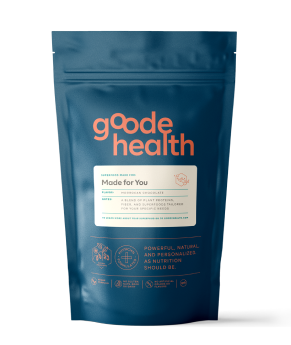When it comes to vibrant and delicious berries, blueberries often steal the spotlight. However, there's another berry that deserves its moment in the nutritional sun: the bilberry. Often confused with blueberries due to their similar appearance, bilberries (Vaccinium myrtillus) are a small, deep blue-purple fruit that grow on low bushes across Europe, Asia, and North America. While both bilberries and blueberries belong to the same botanical family, they offer distinct health benefits and nutritional profiles. In this article, we'll delve into the exceptional qualities of bilberries, highlighting their unique nutritional composition and the ways they contribute to your health.
How are Bilberries and Blueberries different?
While bilberries and blueberries look similar, they differ in several key ways:
- Flavor and Texture: Bilberries are known for their more intense and tangier flavor compared to blueberries. Their flesh is softer and juicier, offering a delightful burst of tartness.
- Size and Shape: Bilberries are generally smaller and have a darker, almost black, hue compared to the larger and lighter blueberries.
- Nutritional Profile: Bilberries boast a higher concentration of certain beneficial compounds, which contribute to their unique health-promoting properties. One such compound is antioxidant-rich polyphenols with bilberries delivering 777mg/serving versus just 395 for blueberries.
What are the benefits of bilberries?
Bilberries are a nutritional powerhouse, packed with an array of vitamins, minerals, and antioxidants that contribute to their remarkable health benefits:
Rich in antioxidants, reducing chronic diseases
- Antioxidant Richness: Bilberries are renowned for their high content of anthocyanins, potent antioxidants responsible for the fruit's deep blue-purple color. These antioxidants help combat oxidative stress, reducing the risk of chronic diseases.
Vitamin C boost for immune system support
- Vitamin C Boost: Bilberries provide a significant dose of vitamin C, a powerful immune-supporting nutrient. Vitamin C plays a crucial role in enhancing the body's defense mechanisms and promoting overall well-being.
Polyphenols for anti-inflammatory and other effects
- Polyphenol Potential: Bilberries contain various polyphenols, including quercetin and resveratrol, which have anti-inflammatory and immune-modulating effects.
Good source of dietary fiber and nutrients
- Fiber and Nutrients: These berries are also a good source of dietary fiber, essential for digestive health, and offer a range of vitamins and minerals such as vitamin K and manganese.
Why did we add Bilberries to our Immune Support Booster?
One of the standout benefits of bilberries lies in their ability to support and strengthen the immune system and why you’ll find it in our Goode Health Immune Support Booster:
- Vitamin C Support: As mentioned earlier, bilberries provide a notable amount of vitamin C, a vital nutrient known for its immune-boosting properties. Vitamin C enhances the production and function of white blood cells, which play a crucial role in defending the body against infections.
- Antioxidant Defense: The anthocyanins and other antioxidants found in bilberries help protect immune cells from oxidative damage. This protection ensures that immune cells remain efficient and effective in warding off pathogens.
- Anti-Inflammatory Action: Bilberries' anti-inflammatory compounds can help reduce inflammation in the body, allowing the immune system to focus its efforts on fighting infections rather than managing chronic inflammation. There’s even some evidence that bilberry may help guard against retinal disorders and improve systolic blood pressure.
While bilberries may share similarities with their blueberry counterparts, they shine in their unique health-promoting qualities. Packed with antioxidants, vitamins, and polyphenols, bilberries offer impressive benefits for immune health. By including these vibrant berries in your diet, you can harness their natural power to support your immune system and overall well-being.
To learn more about our Wellness Blend and unlock personalized wellness recommendations based on your needs, take our nutritional quiz, HERE.
NOTE:
Remember, as with any dietary change, it's important to consult with a healthcare professional before making significant modifications to your diet.



